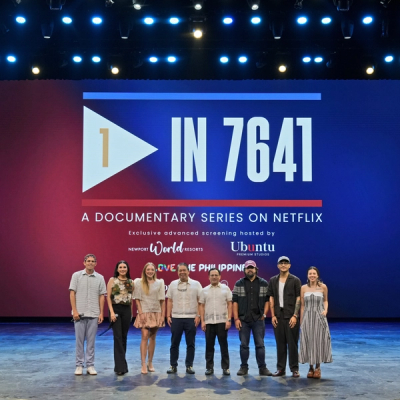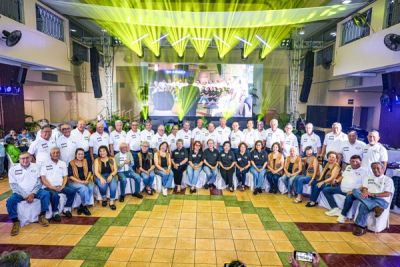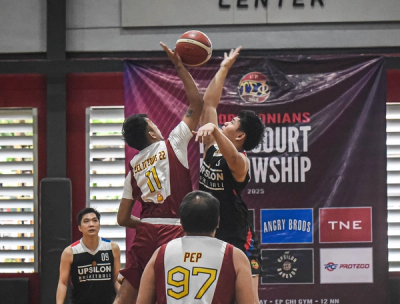Alumni
A Living Bridge: The Upsilon Mentorship and Coaching Program
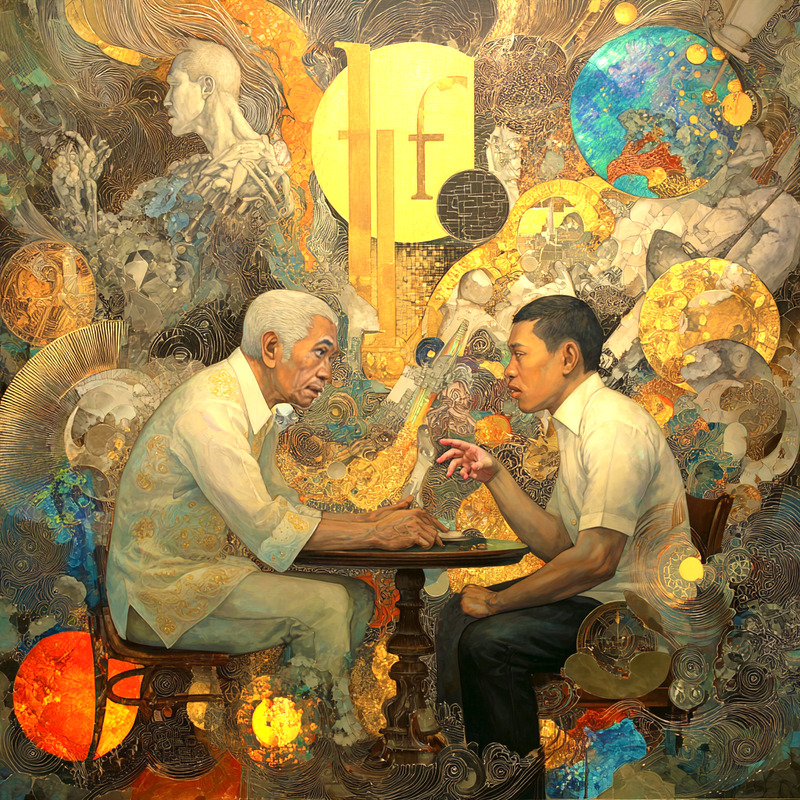
"Brotherhood is not in the ceremonies, but in the constancy," - Manual of Doctrines.
It is not exactly a secret, but like many of Upsilon’s most meaningful undertakings, it worked sub rosa, gaining traction in the performance of an important work sans fanfare. Now in its third year, the Upsilon Mentorship and Coaching Program is still known to many only through photographs posted in group chats, of a senior listening to a younger brod, and vice versa, over dinner, or afternoon coffee. It may look spontaneous, but behind it all is a grand design.
In 2022, a far-reaching initiative began to take shape within the Upsilon Sigma Phi Alumni Association under the term of Ed Sunico ‘86 as President. Lewis Yu ‘86, then Trustee in charge of the Membership Committee, posed a question to the youngest brods: "What can we do for you?" The answer came from Alaine Gonzales ’15, the youngest member of the USPAA Board at the time, "The juniors want to be mentored."
As Lewis recalls, the idea took a while to take off, perhaps because his vision diverged from the common idea of what mentorship meant. "Most of the brods thought of it as a professional mentoring program, doctors mentoring aspiring doctors, lawyers mentoring lawyers, as well as networking," he says. But Lewis had something else in mind.
"Having been part of a peer coaching program in PAREF Southridge, I envisioned something deeper than just professional mentoring, more like someone further along in life guiding someone younger through the concerns, challenges, and anxieties that come with starting a family. That experience led to many meaningful conversations about life as a whole," says Lewis.
He felt Upsilon provided the ideal environment for such mentorship: "There was that natural affinity among the brods that I felt could make the program work."
And while some brods felt mentoring already happened informally during fellowships, Lewis believed that structure, anchored in the IF, the Credo, and fraternity doctrines, would deepen its impact. "It could be a tool in helping shape the brods," he adds.
For Mitee Dimagiba ’86, the idea struck a familiar chord. “Lewis reached out to me while I was still based in Sydney around 2020 or 2021,” he recalls. “He shared his vision for a mentoring and coaching program, and I immediately felt it was something the fraternity needed.” Both he and Lewis knew how much they owed to Upsilon and wanted to give back by nurturing younger brods through a more structured program. “We wanted to help ensure that the values that shaped us would continue to guide the next generations,” Mitee reflects. Lewis later invited him to work with the 2022 USPAA Board under Ed’s leadership, helping bring the vision into practice.
Soon, volunteers stepped forward, and brods were trained in coaching for around 12 to 16 hours. A long-term vision began to take root: "Each of us compelled by a sense of duty to care for one another and help one another be the best he can be through meaningful conversations. Being a mentee/coachee and later on as a coach and mentor, we continue that cycle."
Lewis reflects that it wasn’t easy at first. "It was hard pushing this idea," he admits. "It kept going back to professional mentorship. Picture an expert giving a lecture in front of 100 resident fellows or a TED Talk. These are good things, but not what we had in mind." What made the Upsilon Mentorship Program distinct was its insistence on one-on-one. "I think that’s what makes it special. It gave the mentee dedicated time and attention. The mentors were busy people, but showing up meant they cared. That made all the difference."
Under President Ed Sunico ’86, whose term was guided by the theme "Upsilon 100 Years Hence," the program found institutional support and philosophical alignment. "The idea resonated strongly because it addressed one of the Membership Committee’s top priorities, values formation and life mentorship for younger brods," Ed explains. "Supporting the program was a natural step to strengthen the fraternity’s foundation by shaping well-grounded, values-driven men."
Ed further emphasized the more profound strategic significance: "The program also served a strategic purpose. It reinforced the idea that residents gather the light within UP, while alumni scatter the light through professional leadership and service. Coaching and mentoring directly bridged these roles."
He also pointed to the broader cultural challenges the program sought to address: "External challenges, anti-frat sentiment, regulatory scrutiny, and social media crises were testing fraternity culture. Alumni had long recognized the need to formalize guidance beyond informal barkadahan systems."
"The program was positioned as an institutionalized offering, targeting at least fifty trained mentors to serve junior brods and residents," Ed says.
Mitee underscores the program’s simplicity. “It’s anchored on values formation — the IF, the Credo, the very concept of brotherhood. That’s what makes it unique.” He prepared by completing an ICF-certified coaching course with Benchmark Consulting, under the guidance of Julius Ordoñez. He later served as the program lead in coordinating the formal training of the first batch of Upsilon coaches. This grounding provided the program with a structured foundation, distinguishing it from informal mentoring or casual networking, and reinforcing the collaborative efforts with Lewis and Ed.
To bring structure to the vision, the USPAA partnered with Benchmark Consulting, a professional coaching and leadership development firm. With support from Trustee Lewis Yu, the first batch of senior brods went through a four-day training course facilitated by Julius Ordoñez, Master Certified Coach and President of Benchmark.
The rollout continued steadily. Among the pilot pool of mentors was Deo Custodio ’91, who would later take on a larger role.
"Upon the invitation of Tatang Mitee ’86, I joined the first batch of mentors," Deo shares. "When I became a USPAA trustee in 2023, I assumed the role of the board’s champion for the coaching and mentoring program."
With USPAA’s continued support, the program expanded later that year, training a second batch of mentors, including brods based in Los Baños. The team also began to develop support materials to help mentors guide sessions with clarity and depth.
"I worked with Pong Ejercito ’74, Tatang Mitee ’86, and Lewis ’86 to put together a Manual on our doctrines, to serve as a guide for our mentor-coaches." The Manual of Doctrines became the guiding text for the mentor-coaches. "We wanted it to be more than life advice," Deo says. "It had to be grounded in who we are as Upsilonians. The doctrines gave that clarity."
Drawing from the fraternity’s foundational texts, the Manual of Doctrines outlines core ideas like ethical responsibility, discipline, the meaning of brotherhood, and the lifelong journey of the Upsilonian. Mentor-coaches were guided to ground each conversation not just in personal experience, but in shared values that transcend generations.
The Manual of Doctrines further shaped this vision, grounding each mentor-mentee relationship in doctrines like manhood through sacrifice, courage guided by wisdom, and service as the highest form of fraternity. These weren’t abstract ideals; they became anchors for real, lived guidance.
The effect was transformative. With the proper training, brods realized that mentoring was not about handing down advice; it was about walking with someone, helping them figure things out for themselves. It was meant to be more than well-meaning; it was intended to be meaningful.
As part of the program’s structure, mentor-coaches were trained to link every encounter to a broader moral compass, guided by the Credo, the IF, and the Manual of Doctrines. As the manual puts it, "The Fraternity is a responsibility to grow and to help others grow."
More than concepts or workshops, the Upsilon Mentorship Program is most clearly felt in the one-on-one meeting between two brods from different generations, often over coffee or dinner. A series of photos submitted by participating brods captures the essence of the program:
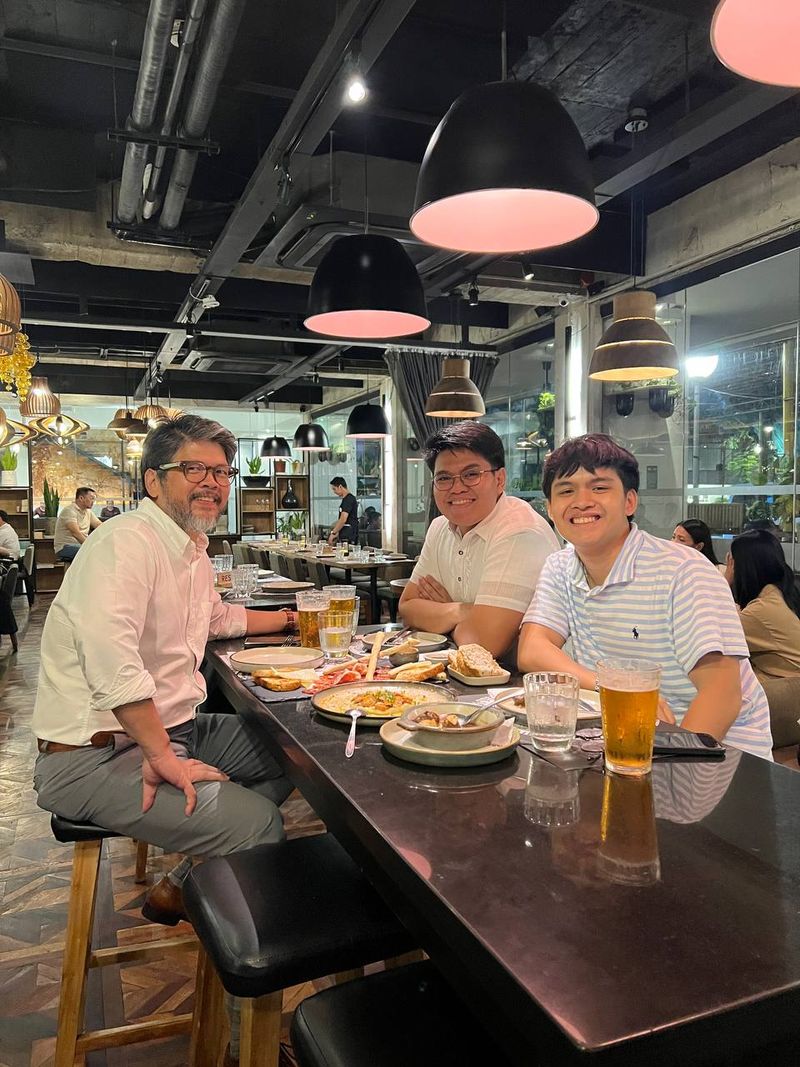
Mentor Alan Ascalon ’93 meets with Junno Salvanera ’23 and Paulo Salonga ’22.
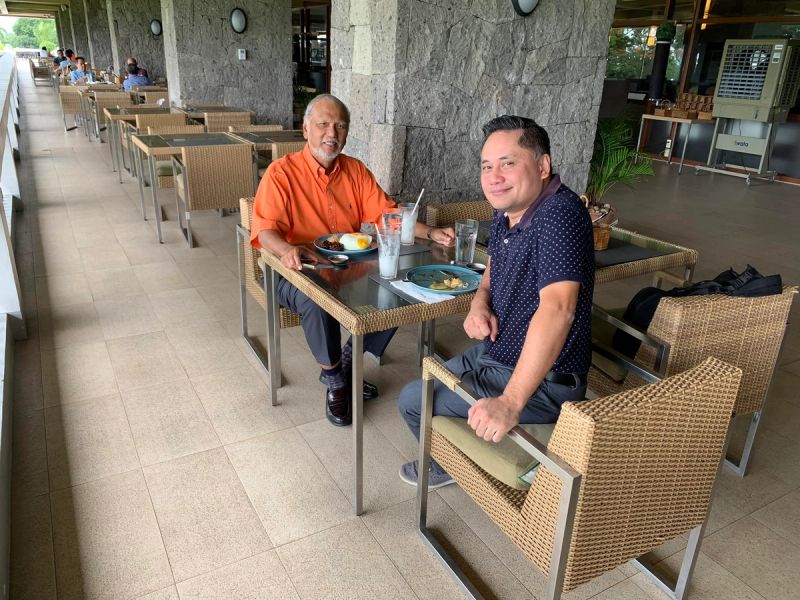
Oscar Lumen 2023 sits with Bing Matoto ‘66, revisiting not only memories but shared hopes for the future.
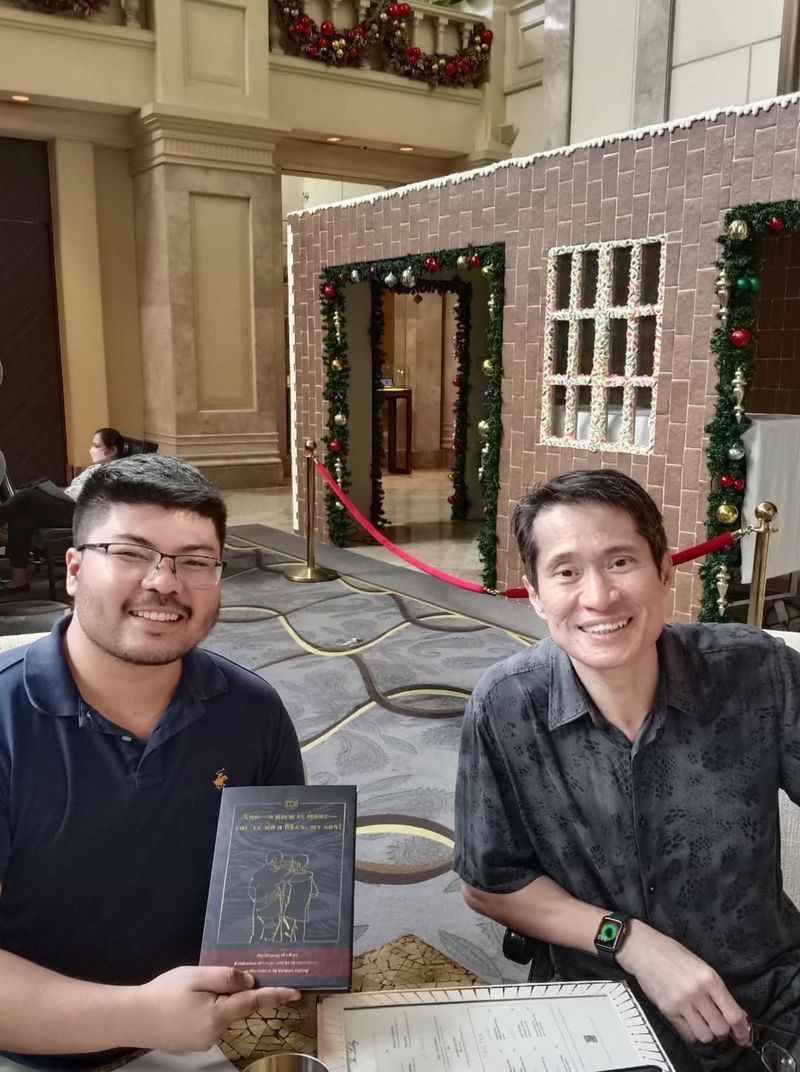
📸 Ken Sarmiento ’82 and Franz Legazpi 2018 share coffee, the IF book clutched proudly.
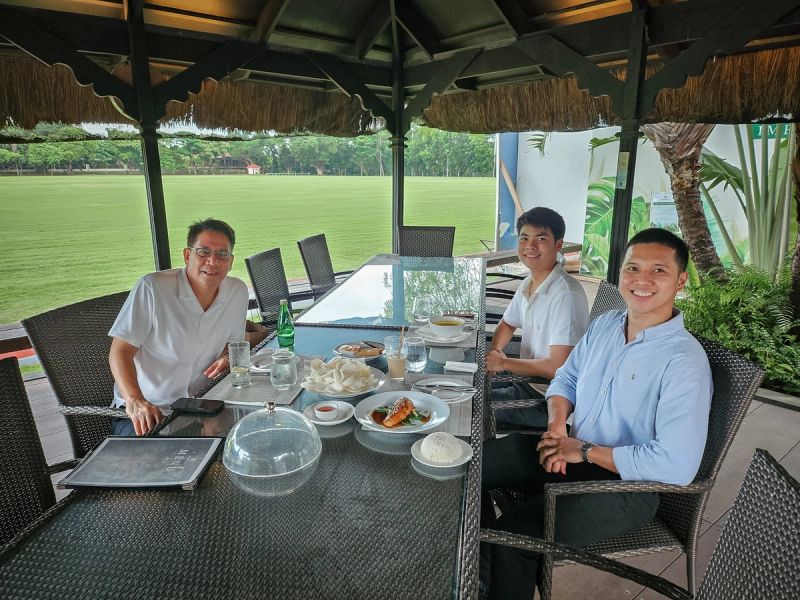
Roman Romulo ’86 breaks bread with Zov Ang 2024 and Kenneth Nicolas 2023, in a moment of intergenerational candor.
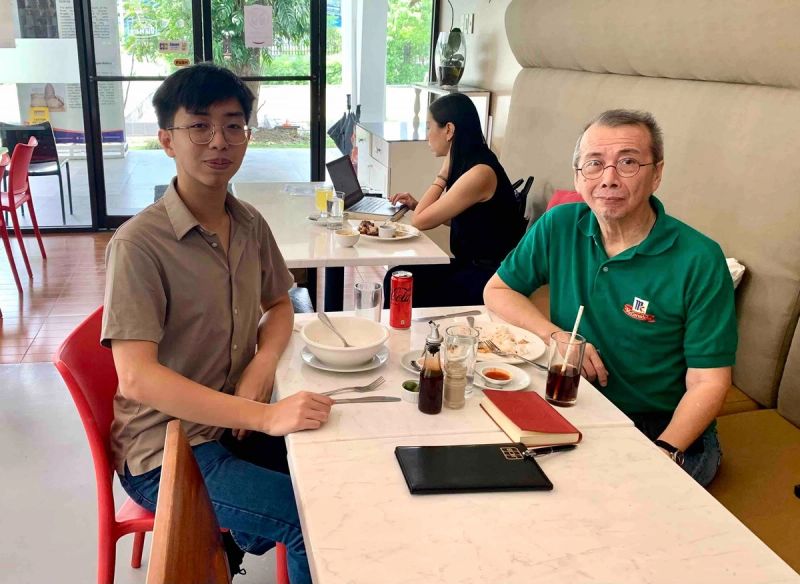
Butch Tan ’74, one of the earliest mentors, sits across from Gabriel Teves 2023, both beaming.
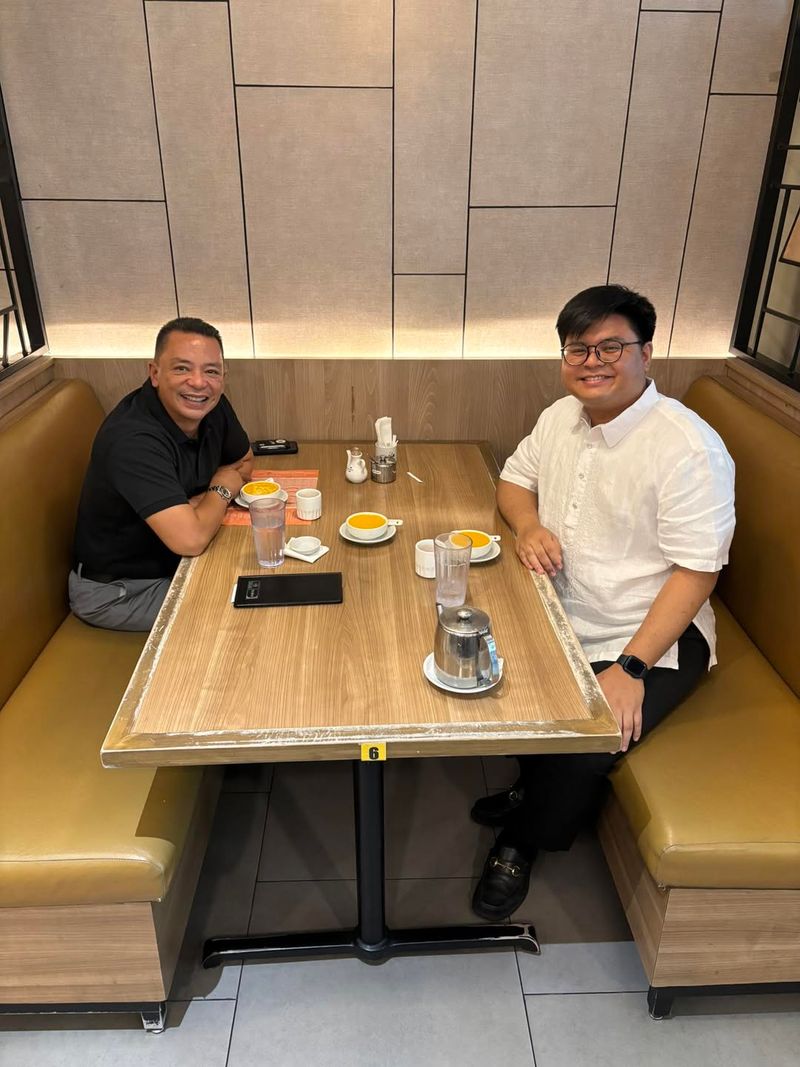
Yari Miralao ’88 and Liam Calvin Lu 2018 share a meal and a conversation.
In each photo, what emerges is not just a shared meal, but a shared sense of belonging.
Ed Sunico reflects, "It has become a living bridge between residents and alumni. Alumni felt re-engaged, and residents received not just career advice but a grounding in fraternity identity and service ethos." Feedback from participants has been "very positive and inspiring." As a proof of concept, it has met its initial goals. However, to scale, it must continue to evolve.
Looking back, Mitee reflects on the program’s broader meaning: “That Upsilon could come together to build such a fundamental project as this coaching program — that gives me hope. Initiatives like this can provide a strong foundation for the next 100 years.” He hopes it will be embraced by future boards and resident brods alike, ensuring it becomes a lasting tradition.
Ed outlines the path ahead: "Institutionalize it, keep it under the Membership Committee, invest in mentor training, continue periodic batches, integrate with traditions, link it to resident-alumni projects, measure and celebrate impact, track mentee progress, adapt with the times, update focus while staying rooted in Upsilon values."
In many ways, the Upsilon Mentorship and Coaching Program is not just a project. It is a return to form, a renewal of fraternal duty, wrapped in modern methods but grounded in timeless values. "This is how I envisioned it," Lewis says. "Each of us, moved by a shared duty to care for one another, helping a fellow brod become the best he can be, one meaningful conversation at a time."
"Brotherhood is not in the ceremonies, but in the constancy," the Manual of Doctrines reminds us. If you’re a brod who’s been shaped by the fraternity, reach out to someone who’s just starting his path. If you’re a young brod looking for guidance, share, don’t wait — ask. This program only works if we keep the bridge alive — brod to brod, conversation by conversation. No ceremonies, just be present.
Be part of that bridge. Be part of the conversation.
About the Author
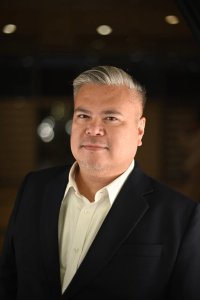
Javier P. Flores
A Juris Doctor from the University of the Philippines College of Law, he is a partner at the Flores & Ofrin Law Office, with expertise in corporation law, property, and litigation. Beyond the courtroom, Javi has made a name for himself as a publisher and editorial force. He is the co-owner of Milflores Publishing, a multi-awarded publishing house known for producing books that seek to elevate Filipino literature. He also founded League Magazine, a publication that spotlights the best governance practices of local leaders. Javi is also a two-time Master Photographer of the Camera Club of the Philippines. He was a former Associate Editor of the Philippine Collegian, the country’s oldest and longest-running student newspaper. Javi also served two terms on the Board of Editors for the Integrated Bar of the Philippines Law Journal.
